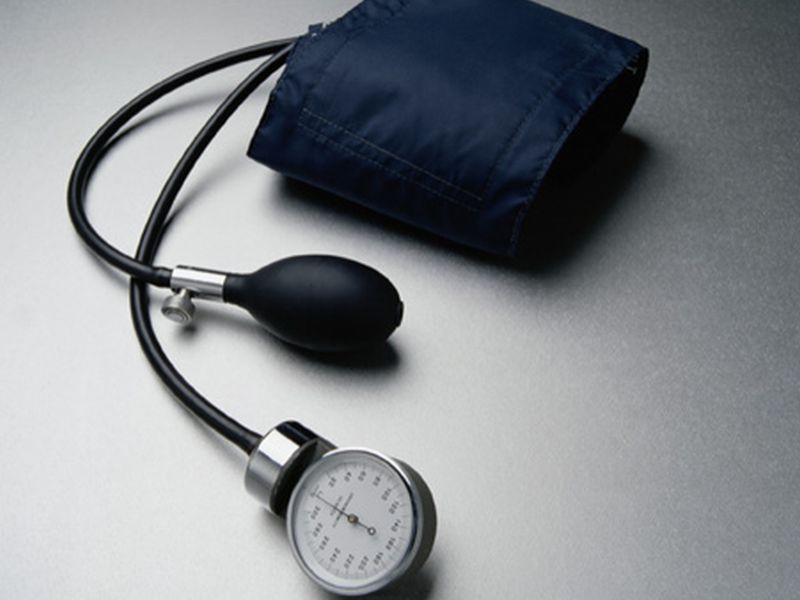MONDAY, April 29, 2019 (HealthDay News) — Patients with type 2 diabetes who receive intensive treatment to keep their blood pressure levels at 130/80 mm Hg or below experience fewer heart attacks, strokes, and other diabetes complications, according to a study published online April 29 in Hypertension.
Faisal Rahman, M.D., of the Ciccarone Center for the Prevention of Heart Disease at the Johns Hopkins University School of Medicine in Baltimore, and colleagues performed an analysis of data from 10,948 adults who had participated in the ADVANCE (Action in Diabetes and Vascular Disease: Preterax and Diamicron Modified Release Controlled Evaluation) study, a multicenter, randomized, controlled trial of patients with type 2 diabetes and a history of cardiovascular disease (CVD) or at least one other CVD risk factor. The authors compared outcomes between patients with type 2 diabetes and hypertension and moderate-to-high cardiovascular risk who were receiving antihypertensive combination treatment (perindopril and indapamide) and patients with diabetes and hypertension receiving placebo.
During 4.3 years of follow-up, there were 837 deaths and 966 major vascular events. The researchers found that both patients at higher baseline risk for cardiovascular disease and those with lower cardiovascular risk benefited from the more intensive treatment. The group receiving intensive blood pressure therapy experienced 9 percent fewer events and 14 percent fewer deaths than the group taking placebo. Patients with diabetes and with blood pressures in the range of 130/80 mm Hg to 140/90 mm Hg before starting the trial benefited from more intensive therapy and achieved lower blood pressures during the trial.
“Our findings demonstrate a benefit of more intensive therapy aiming for blood pressure thresholds at 130/80 or below and should help resolve some ongoing confusion over optimal blood pressure targets for people with diabetes,” a coauthor said in a statement. “Patients, including those with diabetes, with blood pressure levels above 130/80 on two consecutive checks should discuss with their physicians whether they need change in treatment to get to a lower number.”
Abstract/Full Text (subscription or payment may be required)
Editorial (subscription or payment may be required)
Copyright © 2019 HealthDay. All rights reserved.



